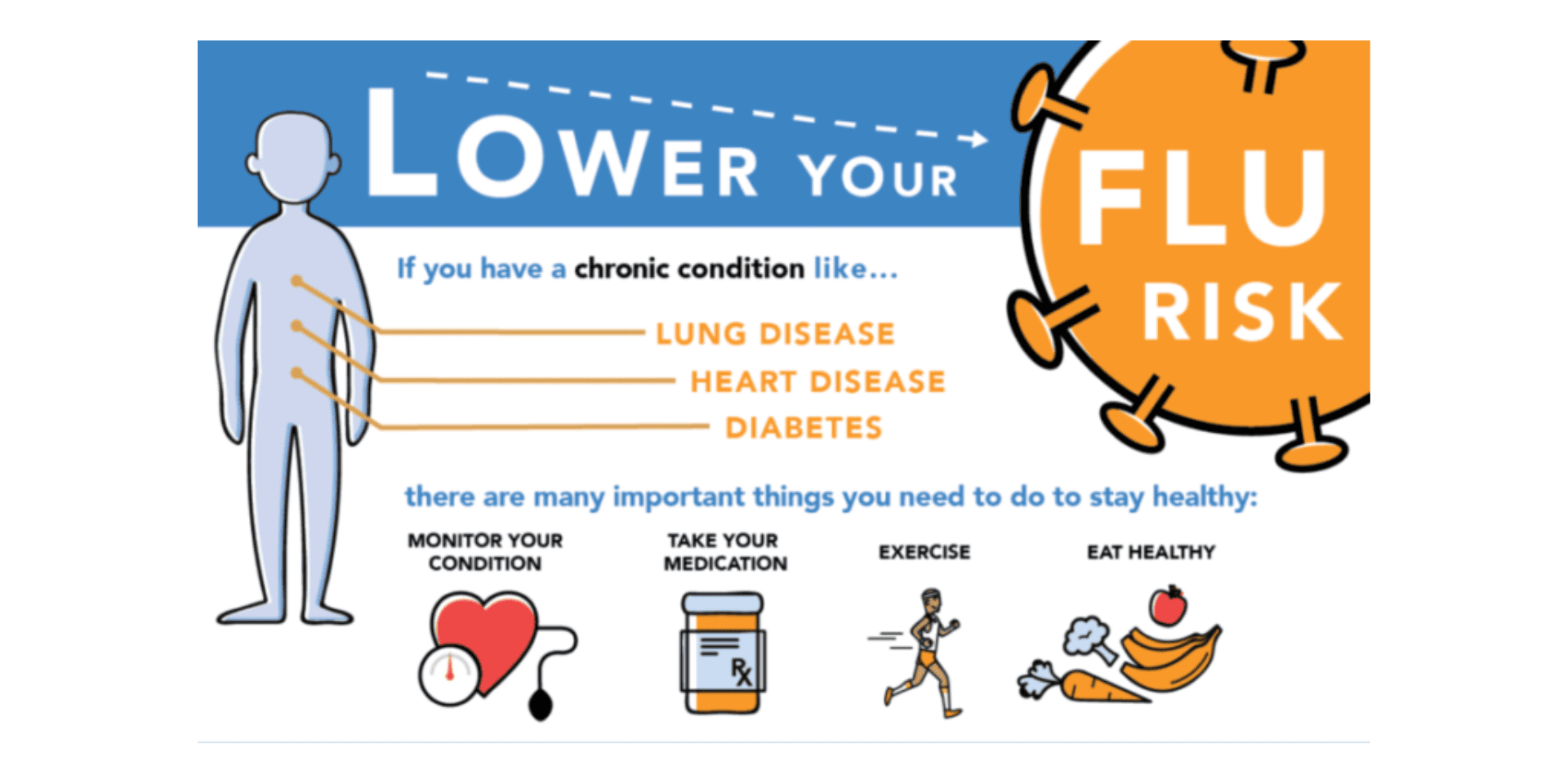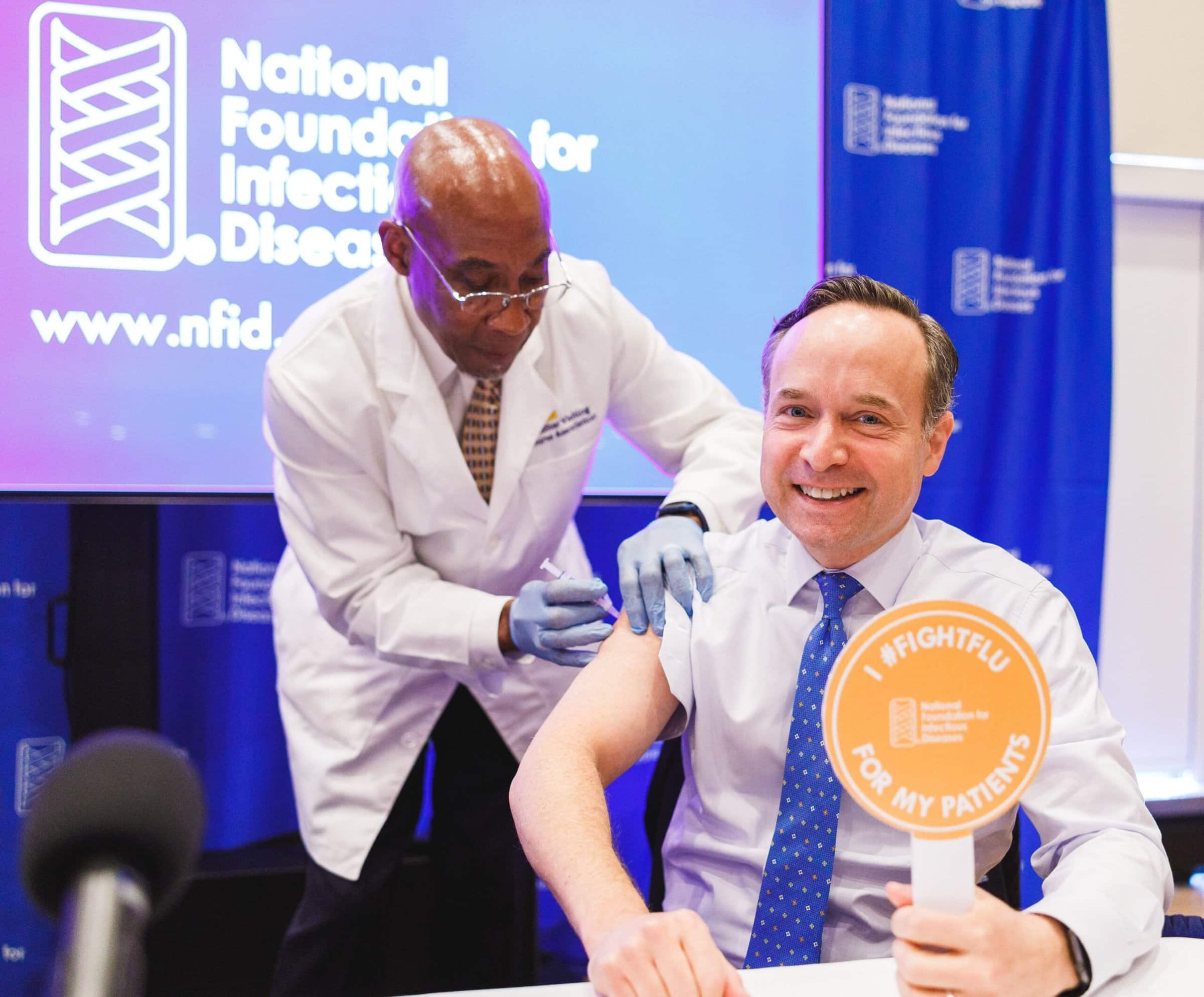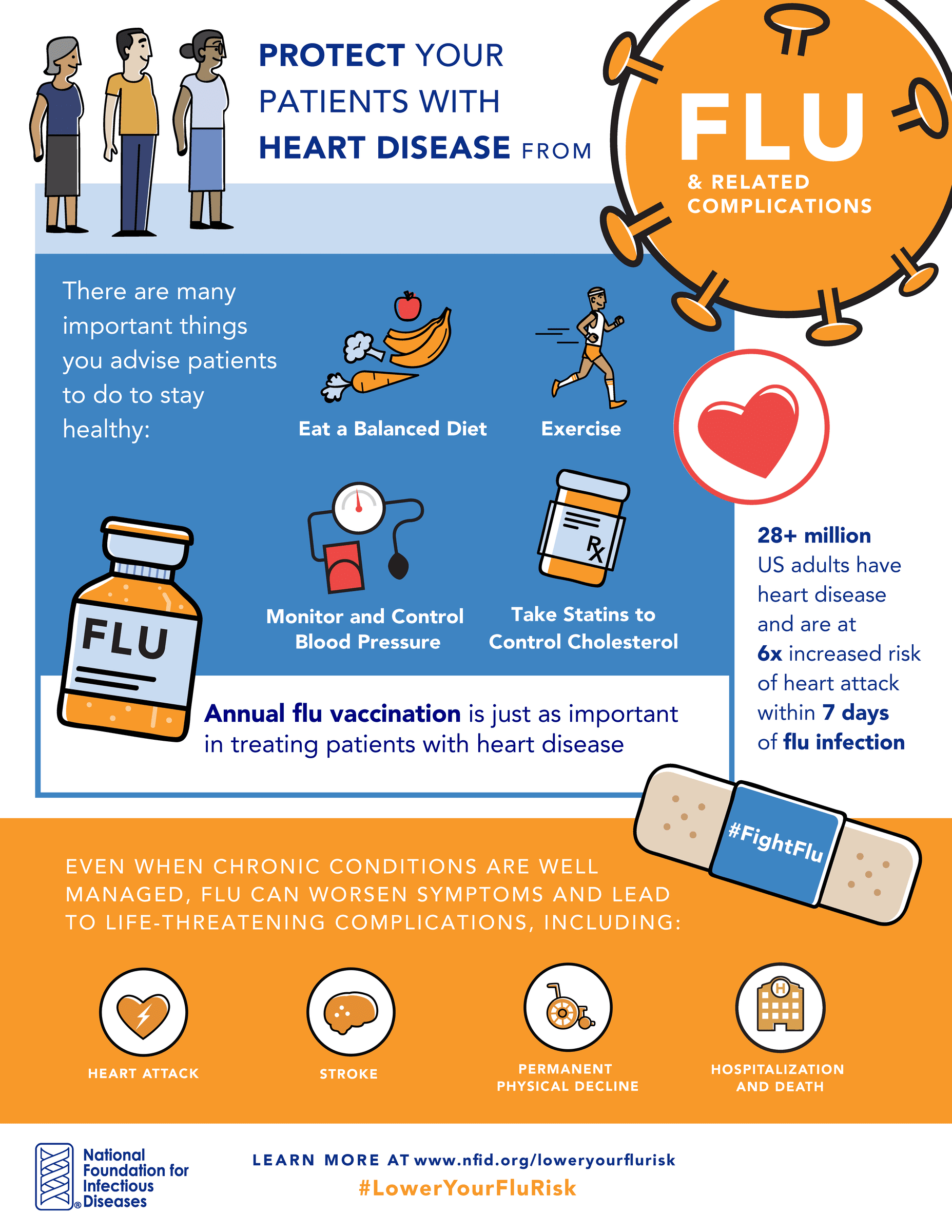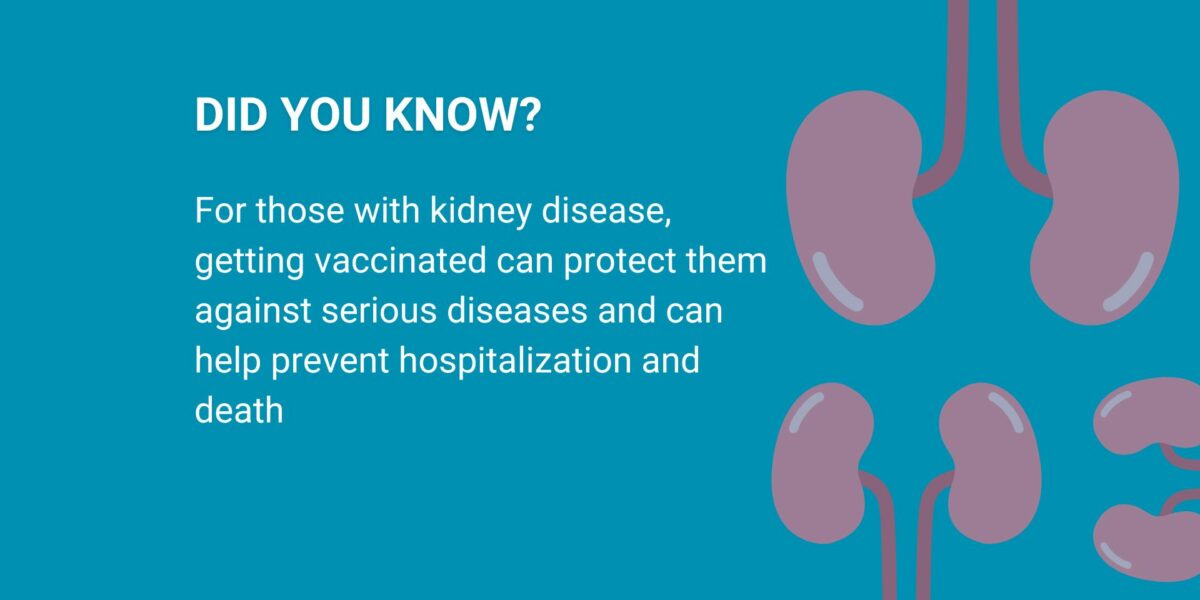

 Special thanks to William B. Borden, MD, associate professor of medicine and health policy at George Washington University, and William Schaffner, MD, medical director of the National Foundation for Infectious Diseases (NFID), for this guest blog post during American Heart Month, held annually each February.
Special thanks to William B. Borden, MD, associate professor of medicine and health policy at George Washington University, and William Schaffner, MD, medical director of the National Foundation for Infectious Diseases (NFID), for this guest blog post during American Heart Month, held annually each February.
Heart disease is the leading cause of death for men and women in the US—each year, one in four deaths are caused by heart disease. As a federally designated event, American Heart Month is an ideal time to raise awareness about the importance of heart-healthy lifestyle choices, including annual influenza (flu) vaccination.
 Flu can be particularly serious for those how have heart disease or have had a stroke. In fact, 28+ million US adults have heart disease and are at six times increased risk of heart attack within seven days of flu infection. An increasing body of evidence points to inflammation as the mechanism by which flu exacerbates heart disease. Exacerbation of existing heart disease may result in blocked arteries, which can lead to a heart attack or stroke.
Flu can be particularly serious for those how have heart disease or have had a stroke. In fact, 28+ million US adults have heart disease and are at six times increased risk of heart attack within seven days of flu infection. An increasing body of evidence points to inflammation as the mechanism by which flu exacerbates heart disease. Exacerbation of existing heart disease may result in blocked arteries, which can lead to a heart attack or stroke.
Yet, one of the most effective measures to prevent a cardiovascular event is often overlooked—an annual flu vaccine.
Unfortunately, in the US, flu vaccination rates remain well below public health goals each year. During the 2018-2019 flu season, only 45 percent of adults got vaccinated against flu, and a recent NFID survey found that one in four high-risk patients do not intend to get vaccinated this season. Clearly, there is more that can be done to protect patients—and their hearts—against flu.
As trusted resources for their patients, healthcare professionals, including specialists, must insist upon annual flu vaccination as part of disease management discussions.
To address this important public health issue, NFID and the American College of Cardiology joined with leading medical and patient advocacy groups to review the science around the dangers of flu in adults with heart disease and other chronic health conditions. The discussions resulted in an NFID Call to Action, which urges all healthcare professionals to prioritize annual flu vaccination for patients with chronic health conditions, and outlines various strategies to improve flu vaccination rates, including:
- Inform adults with heart disease (and other chronic health conditions) that flu can exacerbate their condition or trigger an adverse cardiovascular event
- Insist on flu vaccination for all patients through the duration of flu season (September–March)
- If your practice does not offer vaccines, write a prescription for a flu vaccine and insist that patients get vaccinated at a local pharmacy or other convenient location
- Highlight the benefits of flu vaccine in reducing the risk of severe illness and related outcomes, even if a patient does get the flu
- Emphasize the increased risk of post-flu frailty—individuals with heart disease may experience permanent physical decline, impacting their ability to remain active and independent.
 When it comes to annual flu vaccination, there is no time like the present. American Heart Month is the perfect time to remind patients why flu vaccination is critical to protecting their health. After all, there are many important things you already advise patients to do to stay healthy: eat a balanced diet, quit smoking, exercise, take medications as prescribed. Make sure to include a strong recommendation for annual flu vaccination as well!
When it comes to annual flu vaccination, there is no time like the present. American Heart Month is the perfect time to remind patients why flu vaccination is critical to protecting their health. After all, there are many important things you already advise patients to do to stay healthy: eat a balanced diet, quit smoking, exercise, take medications as prescribed. Make sure to include a strong recommendation for annual flu vaccination as well!
Help spread awareness about the link between flu and chronic health conditions with NFID free tools and resources in the #LowerYourFluRisk Toolkit, including short public service announcement videos:
To join the conversation, follow NFID on Twitter, using the hashtags #LowerYourFluRisk and #FightFlu, like us on Facebook, follow us on Instagram, join the NFID Linkedin Group, and subscribe to receive future NFID Updates.
Related Posts

Vaccines and Heart Health: A Vital Connection
Heart disease can increase the risk of serious or fatal complications from respiratory diseases including COVID-19, flu, and RSV

3 Things You Need to Know about Kidney Disease and Vaccines
It is important for people with kidney disease to understand how critical vaccination can be for their health and well-being

5 Reasons Why Vaccines Are Good for Your Heart
For people with heart disease, getting vaccinated is as important to staying healthy as diet and exercise
